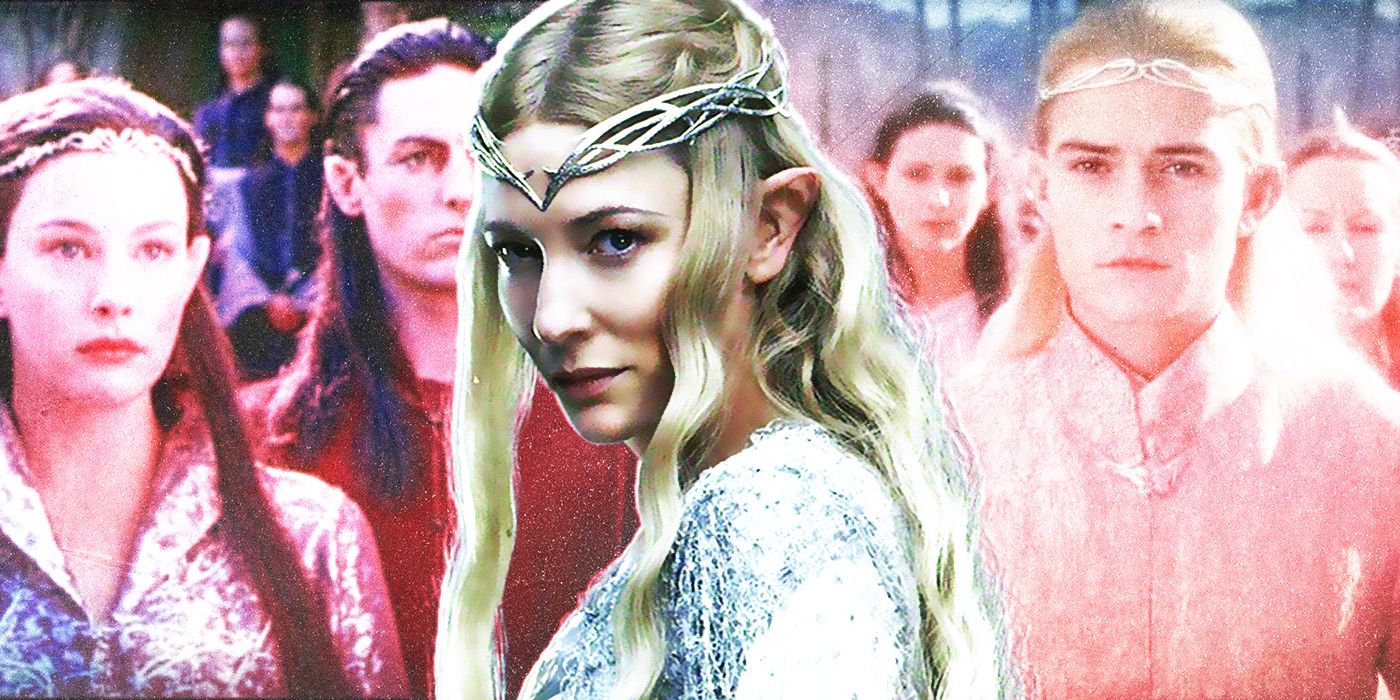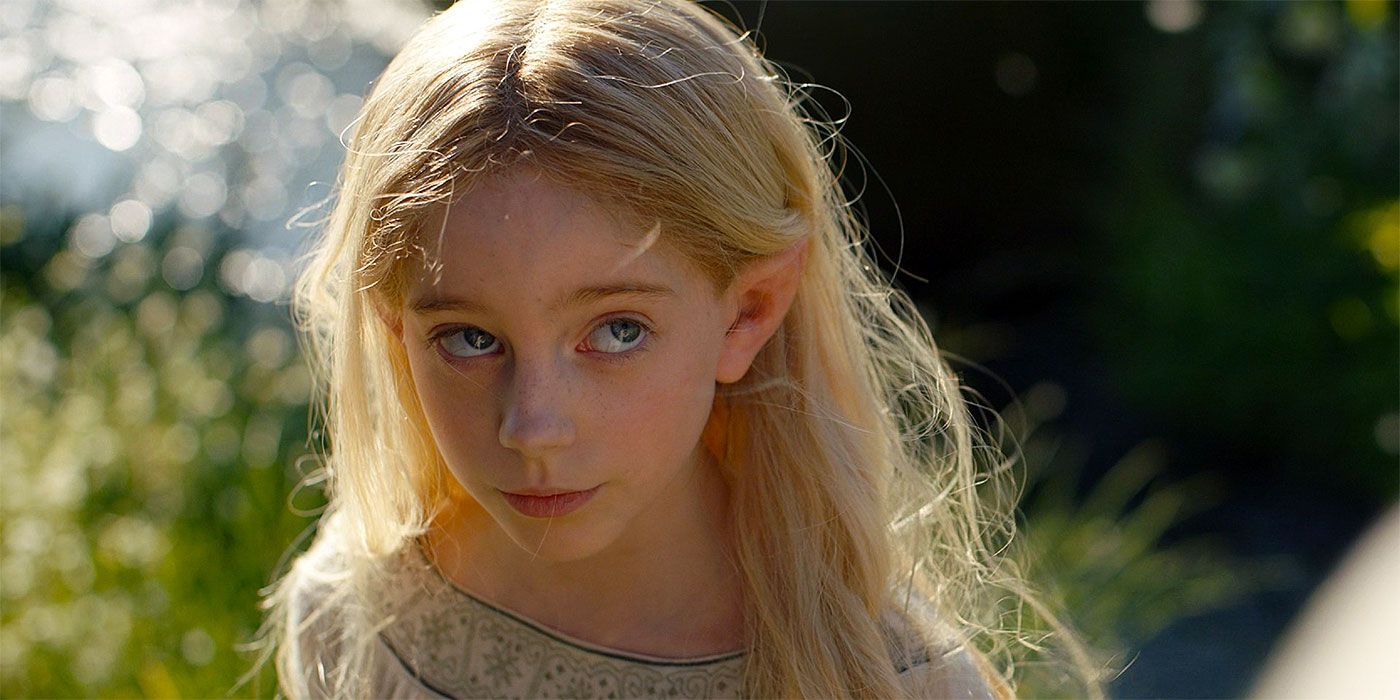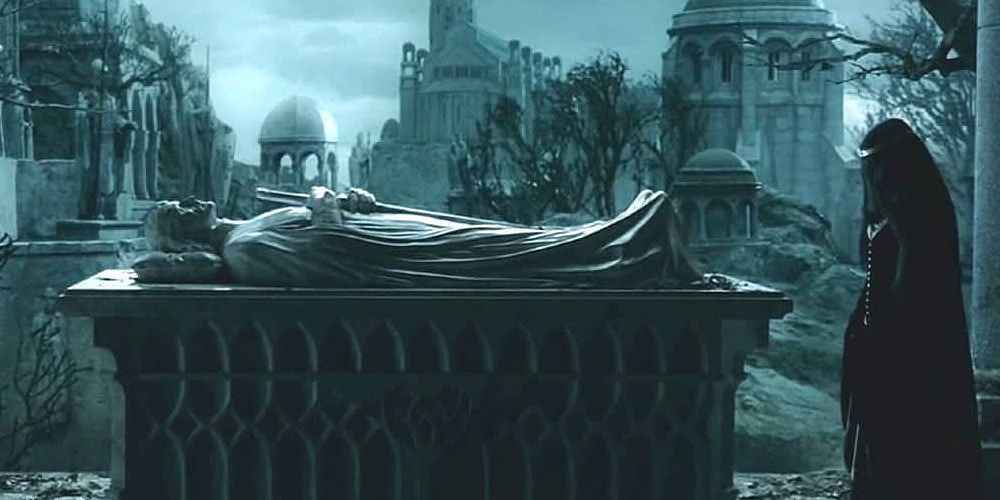Quick Links
Summary
- Elves in Middle-earth rarely have children because it takes a great deal of thought and consideration.
- Elven children age slowly and mature at 100, which means they have a longer period to grow.
- Arwen's choice to have children with Aragorn reflects the Elven race's careful approach to parenting.
The Elves of Middle-earth stand out among all other races. With their superior strength, intelligence and everlasting lifespan, they could've ruled much of the land if they chose to. Instead, they decide to watch over Middle-earth from the safety of their forests. But they don't hide away from danger when it comes, as Elves play a prominent role throughout The Lord of the Rings. However, out of all the Elves and kingdoms featured in the story, no Elven children are featured in Tolkien's stories. Indeed, their arc in the Lord of the Rings trilogy is the exact opposite: they are leaving Middle-earth for the lands beyond the sea, bringing their story to an end instead of raising new children as a beginning.
Despite their incredibly old age, Elves don't simply appear out of nowhere as fully grown adults. Prime Video's The Lord of the Rings: The Rings of Power was the first to show Elven children in a flashback to a young Galadriel playing with her peers. There are clearly different ages among their kind; Elrond even has his daughter, Arwen, and Legolas is the son of the Elf King in Mirkwood. At first glance, it could be assumed that J.R.R. Tolkien didn't want to include children in this tale of war. The lack of young Elves in the saga can be quickly justified as expediency, since doing so would detract from the story Tolkien wished to tell. However, he went into great depth about the Elven kind, including the rarity of their children. It sheds light not only on why there are so few of them in the saga, but how that informs the choices of some important figures in the story.
Updated, April 8, 2024 by Robert Vaux: The article has been updated to expand upon Tolkien's description of the Elves, and their reasons for having children infrequently and with the greatest of care. It also discusses the implications of the habit on key figures in The Lord of the Rings, such as Arwen, who chooses to remain behind to have children with Aragorn while her people sail away to the lands of the west.
The Birth of an Elf Is a Rare Occurrence in Middle-earth
Known Elven Children to Appear In Lord of the Rings & The Rings of Power
|
Elven Parents |
Child |
|
Elrond & Celebrían |
Arwen, Elladan, Elrohir |
|
Arwen & Aragorn |
Eldarion |
|
Finarfin & Eärwen |
Galadriel, Finrod |
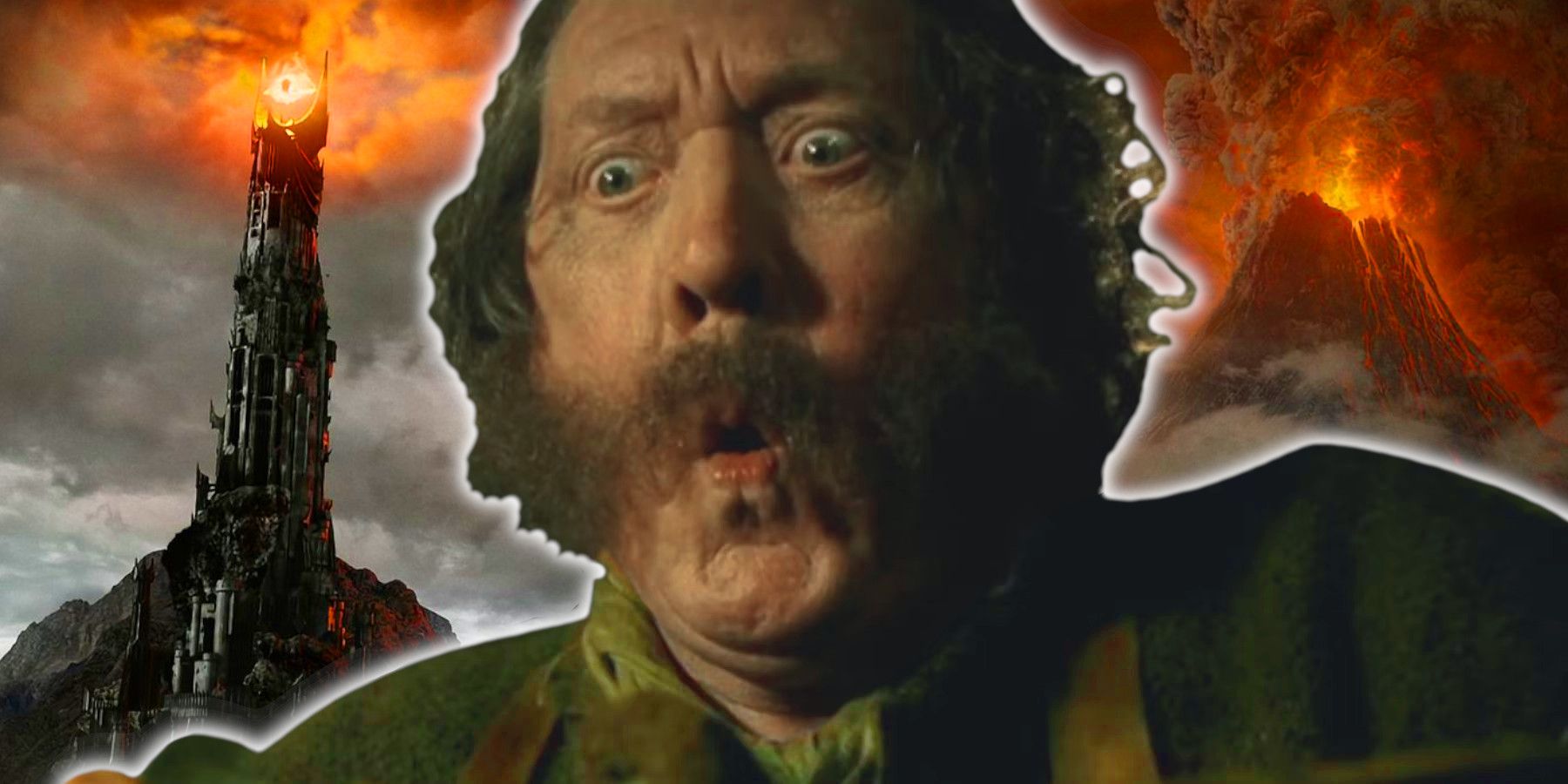
How an Innkeeper Almost Doomed Middle-earth in The Lord of the Rings
Barliman Butterbur played a small role in Peter Jackson's The Lord of the Rings films, but in the novel, his mistake nearly cost Frodo his life.Unlike other races of Middle-earth, casual intercourse was not enough to conceive a child because, for Elves, it was a far more conscious effort that required, as Tolkien put it, a "share and strength of their being, in mind and in body." Furthermore, marriage and parenthood are not forced upon Elven people. Within The History of Middle-earth book series, it's said that Elves marry for love and with free will from both parties, and that the idea of adultery is unthinkable.
In fact, all Elves are "seldom swayed by the desires of the body," so lust isn't an issue for them. A marriage between them is a solemn and sacred affair, with the benefit of stemming from their inhuman wisdom and insight. As such, their marriages would lack the kind of dysfunction that might be found in a human or dwarven marriage, with the two partners acting in harmony with each other and rarely quarreling or disagreeing. Elven marriages are built to last.
Similarly, an Elven child being brought into the world is a big deal, not only for the parents but for the race as a whole. The child would be immortal, meaning the decision to conceive and bring new life into the world is a huge choice by the parents. Doing so could potentially disrupt their delicate balance with the natural world: requiring more resources on a more or less permanent basis. And since it is truly a choice and not simply a happenstance of biology, they have the luxury of weighing the variables carefully before becoming parents.
Elven Children Age More Slowly Than Other Races
Elven children age differently from all other races. "They grow slower than mortals though their minds are faster, learning speech before the first year," and they can learn to walk and dance shortly after. Their mind and manner of speaking would make them seem far older than they appear, especially since their bodies take longer to develop. However, nothing appears different when comparing Elf children to humans, as "Elf children at play would resemble fair happy children of Men with little need for governing." But an Elf "might appear to be seven when actually in their 20s, having adult size at 50 and full maturity at 100."
With how long Elves stay children, it would seem logical to see them everywhere throughout the kingdoms. But 50 years is nothing to an Elf in the grand scheme of things, and with the long-term implications of a new life in their minds, they're apt to do so only with the greatest of care. For instance, an Elf parent might devote the whole of that time solely to raising their child: setting aside other concerns only to return to their former activities once the child has grown. Elven longevity means that they can do so without concern for the time lost as a parent, since time is a very relative thing to them.
Elves Choose to Have Children Carefully
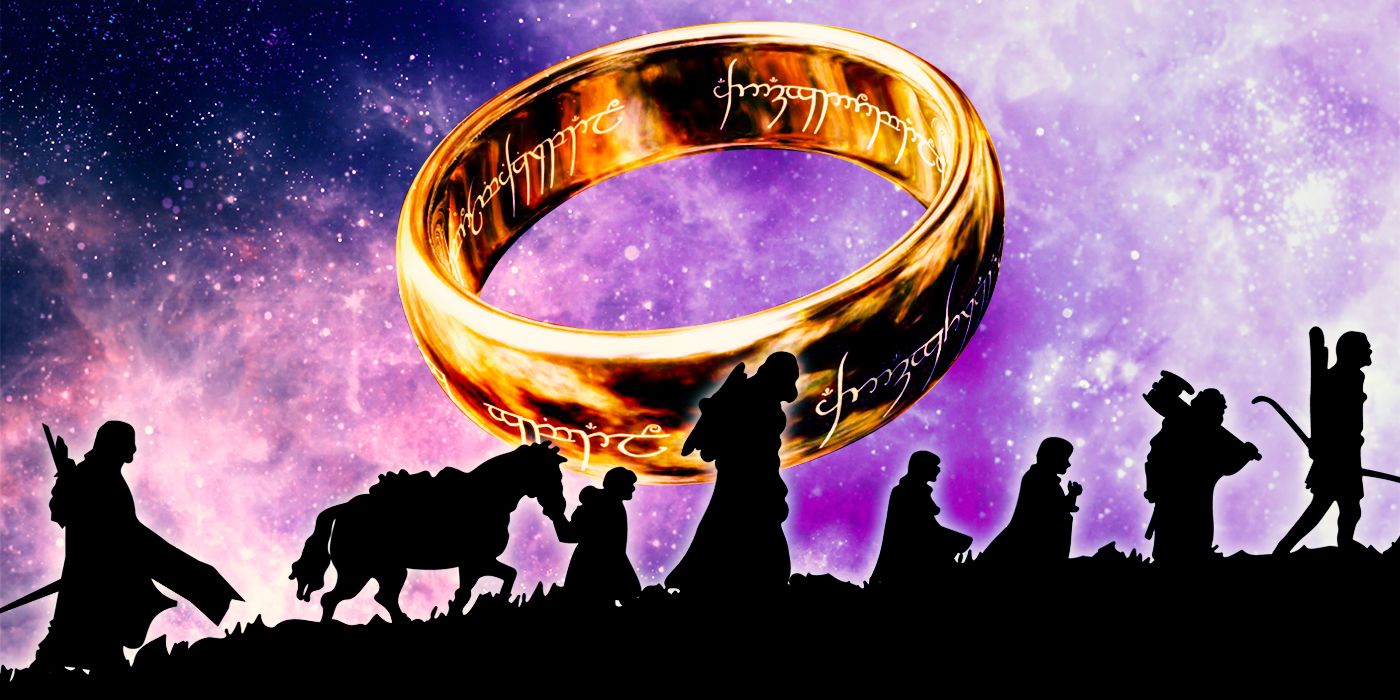
Lord Of The Rings: How Old Each Member Of The Fellowship Actually Is
From Frodo to Gandalf, the ages of each member of the Fellowship were quite deceptive.That plays out during the history of Middle-earth, particularly the Third Age which ends when the Elves depart for the Undying Lands: giving way to the age of humans. As with all things about the species, the process takes a long time, going back to The Last Alliance of Men and Elves which defeated Sauron the first time. The cost would have been terrible, for while Elves cannot die naturally, they can be killed in battle. With humanity now rising to the forefront -- despite the weakness of Isildur and the breaking of the line of Gondor's kings -- the Elves retreated to traditional homesteads such as Rivendell and Lothlorian.
Tolkien describes them as becoming "less prevalent" elsewhere, reflecting both the losses they sustained in the first war and their plans to depart for the Gray Havens across the sea. It wouldn't be surprising if no Elf children existed at all during the events in The Lord of the Rings, especially as they prepared to leave Middle-earth for good. Rather than having children to replace the Elves killed in the war, they would all but stop: signaling their slow withdrawal from the ways of the world, and their intentions to "move on" to another plane of existence. Accordingly, all of the Elven "children" in the War of the Ring are fully grown: including the likes of Legolas, who never has children and ultimately follows his kin across the sea once Aragorn dies many years after the War of the Ring.
Arwen Chose to Stay In Middle-earth and Have Children, Despite Knowing She Would Fade

How Did Gandalf Become White in The Lord of the Rings: The Two Towers?
Gandalf didn't exactly die when he fought the Balrog in The Lord of the Rings. As a wizard, he had the ability to be reborn as Gandalf the White.But the tendency to refrain from having children -- and the implied cessation of the practice entirely after the Last Alliance -- plays out most fully with Arwen, who foregoes her immortality in order to remain with her lover Aragorn. Her father Elrond describes her fate in the film version of The Two Towers, as Aragorn dies in the fullness of time, and she's left to grieve and wander alone until she simply ceases to be. She ultimately changes her mind because remaining will allow her to have children. Peter Jackson's movie spells that out specifically when she sees their son Eldarion in a vision as she prepares to depart, and cannot bring herself to leave: staying in Middle-earth and marrying Aragorn at the conclusion to the saga.
Eldarion grows up to rule Gondor after his father passes away, and Tolkien even planned another sequel during his rule -- called The New Shadow -- which he ultimately abandoned in the planning stages. Arwen also bears at least two daughters by Aragorn, which Tolkien spells out in his collection The Nature of Middle-earth. Arwen's fate, and the decision she makes have a huge impact on the future of Middle-earth: not only with Gondor's line of kings, but with Frodo himself, who gets her spot on the boat to the Gray Havens at the conclusion of The Return of the King.
It's also an object example of the care Elves take when deciding to have children, and the fact that they rarely do so. Arwen may have seen her love for Aragorn as her last chance, and -- knowing the nobility of his heart with the wisdom of her people -- made the choice to stay with him and have children. It reflects the same process by which Elves would have had children throughout their long history in Middle-earth: deciding to do so only when circumstances were favorable and considering the long-term implications as well as the short-term ones. Jackson didn't need to include Eldarion in his adaptation, but doing so provides an excellent opportunity to shed some light on the Elves' approach to parenting.
Peter Jackson's Lord of the Rings trilogy is currently streaming on Max. The first season of The Rings of Power is currently streaming on Amazon Prime.
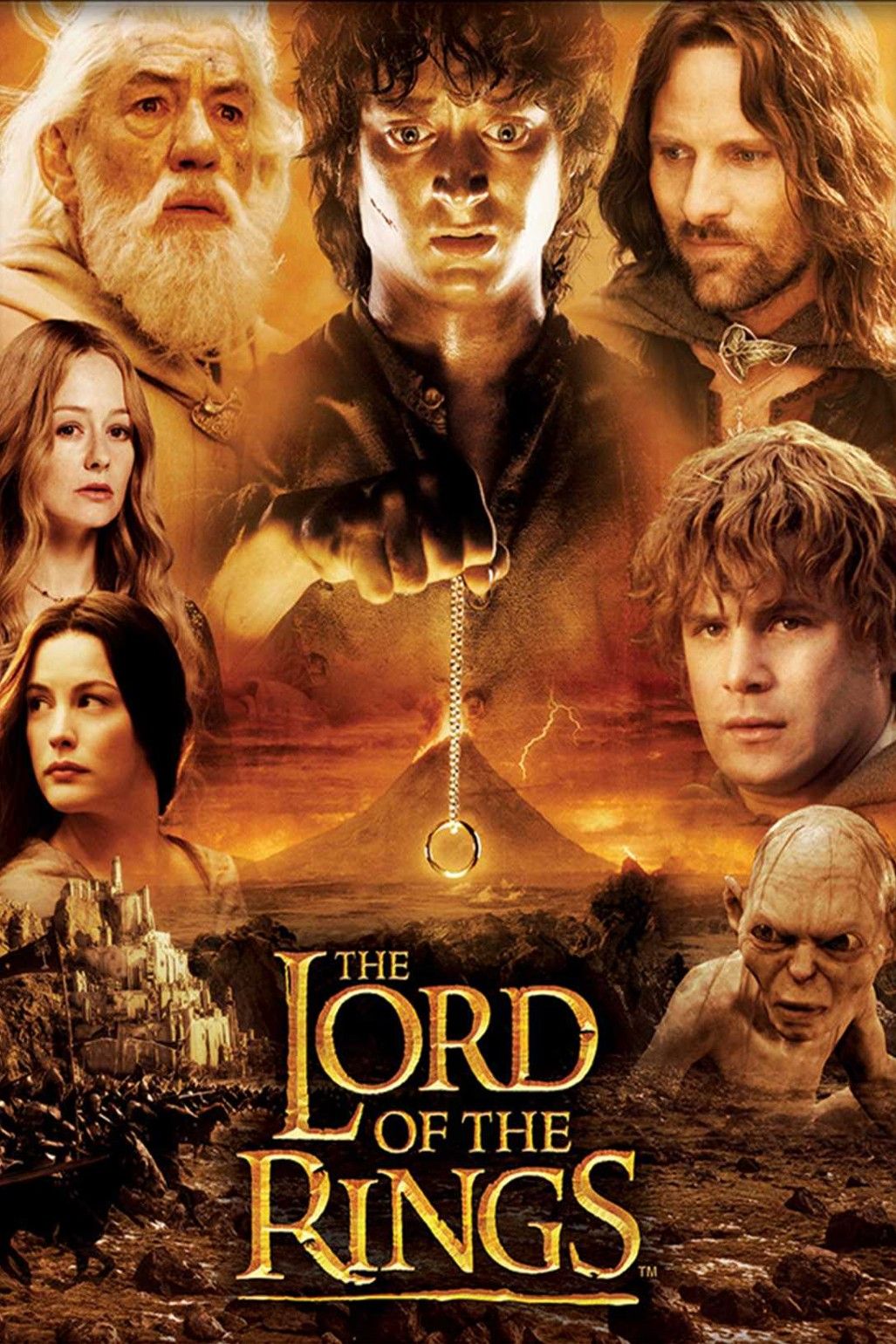
The Lord of the Rings
The Lord of the Rings is a series of epic fantasy adventure films and television series based on J. R. R. Tolkien's novels. The films follow the adventures of humans, elves, dwarves, hobbits and more in Middle-earth.
- Created by
- J.R.R. Tolkien
- First Film
- The Lord of the Rings: Fellowship of the Ring
- Latest Film
- The Hobbit: The Battle of the Five Armies
- First TV Show
- The Lord of the Rings The Rings of Power
- Latest TV Show
- The Lord of the Rings The Rings of Power
- First Episode Air Date
- September 1, 2022
- Cast
- Elijah Wood , Viggo Mortensen , Orlando Bloom , Sean Astin , Billy Boyd , Dominic Monaghan , Sean Bean , Ian McKellen , Andy Serkis , Hugo Weaving , Liv Tyler , Miranda Otto , Cate Blanchett , John Rhys-Davies , Martin Freeman , Morfydd Clark , Ismael Cruz Cordova , Charlie Vickers , Richard Armitage
- Character(s)
- Gollum , Sauron
- Upcoming Films
- The Lord of The Rings: The War of The Rohirrim
- Genre
- Fantasy , Action-Adventure
- Where to Stream
- Max , Prime Video , Hulu

